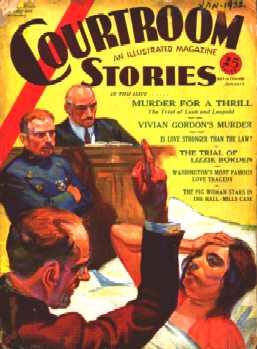A PARIS court sentenced 25 Muslim militants yesterday for planning attacks against the Eiffel Tower and other targets with explosives in support of rebels fighting Russian forces in Chechnya.
The five main defendants, of Moroccan and Algerian origin, received prison terms of eight to ten years for planning terrorist acts. The others received lesser terms for criminal association. Two were acquitted in a trial which prosecutors said demonstrated the globalisation of the jihad movement.
Prosecutors at the six-week trial, which ended last month, said that the group was planning to hit the Eiffel Tower, Les Halles underground shopping centre, police stations, and Israeli interests. The group, which was under police surveillance, was close to preparing its action at the end of 2002 when officers raided homes on housing estates in Romainville, la Courneuve and other suburbs. They found electronic devices and chemicals that could be used for bomb-making as well as a chemical protection suit, a large sum of cash and false identity papers.
In a second wave of arrests, in January 2004 in Venissieux, near Lyons, investigators found chemical products, including traces of what was believed to be ricin, a deadly toxin. The judges said in their verdict that the prosecutors had not been able to prove that the defendants were developing chemical weapons.
The men were said to have belonged to a Chechen connection Muslim extremists who received training in the Caucasus.
Among those convicted was Chelali Benchellali, the imam of a mosque in Lyons and father of Menad Benchellali, 32, who was given a ten-year sentence for being one of the group leaders. Another of the imams sons, Mourad, was one of seven French detainees held at the US base at Guantanamo Bay in Cuba. Released in July 2004, he now faces terrorist-related charges iin his home country.
Merouane Benhamed, 33, described as the groups chief, was also jailed for ten years. Said Arif, 40, who was extradited from Syria to stand trial, and Nourredine Merabet, described as the groups financier, were sentenced to nine years.
Benhameds lawyer Isabelle Coutant-Peyre denounced the verdict, saying that the defendants had been convicted because they were Muslims. This serves the interests of the US, Algeria and Russia, said Mme Coutant-Peyre. France has the job of convicting Muslims who are a problem to these powers.
The lawyer is a sympathiser with what she calls revolutionaries. Three years ago she married Ilich Sanchez Ramirez, the terrorist assassin known as Carlos the Jackal, who is serving a life sentence in a Paris prison.
The Chechen gang was rounded up as part of a continuing operation by police and intelligence services against activists among Frances six million Muslims. |
 A French prosecutor in the trial of 27 people suspected of planning a terrorist attack on the Eiffel Tower Tuesday challenged an attempt by one defendant to have the case against him thrown out. Anne Kostomaroff rejected a claim by 41-year-old Algerian former army officer and chemicals expert Said Arif that the French court could not try him for acts committed outside France. Kostomaroff said Arif was a legitimate defendant before for the French courts because he had allegedly acted as one of a group of defendants accused of committing crimes in France. The prosecutor also rejected a call by Arif's lawyer, Sebastien Bono, not to allow evidence he claimed had been obtained from his client under torture in Damascus. She said the Algerian had been questioned in Damascus at the request of the French authorities and in the presence of a French examining magistrate.
A French prosecutor in the trial of 27 people suspected of planning a terrorist attack on the Eiffel Tower Tuesday challenged an attempt by one defendant to have the case against him thrown out. Anne Kostomaroff rejected a claim by 41-year-old Algerian former army officer and chemicals expert Said Arif that the French court could not try him for acts committed outside France. Kostomaroff said Arif was a legitimate defendant before for the French courts because he had allegedly acted as one of a group of defendants accused of committing crimes in France. The prosecutor also rejected a call by Arif's lawyer, Sebastien Bono, not to allow evidence he claimed had been obtained from his client under torture in Damascus. She said the Algerian had been questioned in Damascus at the request of the French authorities and in the presence of a French examining magistrate.
 The trial of 27 people suspected of planning terrorist attacks in France opened Monday in a Paris court, following one of the country's biggest anti-terrorism investigations in recent years. They are charged with associating with criminals connected to a terrorist organisation. Some of the suspects have given statements claiming that attacks were planned against French targets including the Eiffel Tower, police stations and a central Paris shopping centre. Others have said the group planned attacks on Russian targets in France to revenge the attack on a Chechen rebel unit in Moscow in October 2002.
The trial of 27 people suspected of planning terrorist attacks in France opened Monday in a Paris court, following one of the country's biggest anti-terrorism investigations in recent years. They are charged with associating with criminals connected to a terrorist organisation. Some of the suspects have given statements claiming that attacks were planned against French targets including the Eiffel Tower, police stations and a central Paris shopping centre. Others have said the group planned attacks on Russian targets in France to revenge the attack on a Chechen rebel unit in Moscow in October 2002.